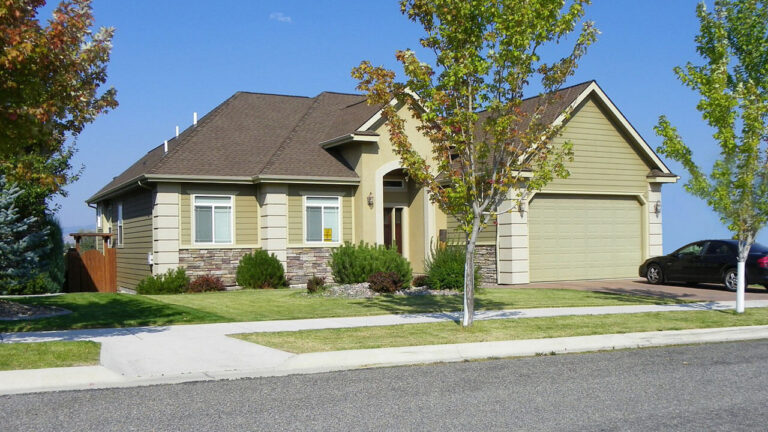That Annoying Garage Door Racket? Let’s Talk Rollers.
Okay, let’s be real: nothing ruins a peaceful morning coffee like a garage door that sounds like it’s auditioning for a heavy metal band. If your door’s grinding, screeching, or juddering like it’s got a vendetta, chances are your rollers are staging a rebellion. We’ve seen it all at Legion Garage Doors in Edmonton—from residential groans to industrial groans—and today, we’re breaking down roller installation like buddies over a toolbox.
Why Rollers Are Your Door’s Unsung Heroes
Think of rollers as the tiny wheels of fortune for your garage door. They’re the only things standing between smooth, silent operation and a symphony of cringes. When they wear out? Oh boy. You get noisy garage door performances, jerky movements, and accelerated wear on tracks, springs, and openers. Ever notice that thunk when the door closes? Yep, often a roller crying for help.
Spotting a Roller Rebellion: The Red Flags
How do you know it’s roller o’clock? Here’s what we see daily:
- The Grind & Shriek: Metal-on-metal sounds that make your teeth ache.
- Visible Wear: Cracked, chipped, or flattened rollers (nylon ones get brittle; steel ones dent).
- Door “Jumping” Tracks: If your door hops or binds, rollers might be seizing up.
- Slow Operation: Like molasses in January? Worn rollers add friction.
FYI, ignoring these can lead to bigger headaches—like garage door track repair or even a snapped cable (garage door cable repair, anyone?).
Roller Types: Picking Your Door’s New Best Friends
Not all rollers are created equal. Here’s the lowdown from our years of garage door installation and repairs:
| Roller Type | Best For | Pros | Cons |
|---|---|---|---|
| Nylon | Quiet residential doors | Silent, rust-proof, affordable | Less durable under heavy loads |
| Steel | Heavy doors or industrial garage door installation | Tough, handles weight | Noisy, can rust (Edmonton winters, we see you) |
| Stainless Steel | Commercial garage door repair or harsh climates | Quietish, rust-resistant, durable | Pricier—but worth it IMO |
| Premium Nylon | Automatic garage door installation | Super quiet, smooth, long-lasting | Higher upfront cost |
We’re partial to premium nylon for most homes—it’s like swapping gravel for butter. But for your beastly commercial overhead door repair jobs? Stainless steel all day.
The DIY Roller Swap: Brave or Bonkers?
Alright, hotshot. Thinking of tackling this yourself? Here’s the skinny:
- Tools You’ll Need: Wrenches, locking pliers, socket set, and new rollers (match the stem type!).
- Safety First: ALWAYS secure the door with clamps. Springs and cables? Do. Not. Touch. (broken garage door spring stories haunt us).
- The Process:
- Lift the door slightly, clamp it.
- Remove old rollers (unscrew brackets).
- Pop in new ones, grease the bearings lightly.
- Reattach brackets.
Sounds easy, right? Until a garage door track alignment issue crops up, or a cable slips… Suddenly, that YouTube tutorial feels like hieroglyphics. Cue the sweat.
When to Wave the White Flag & Call Legion
Look, we love DIY spirit. But some jobs scream “call a garage door contractor near me.” Like when:
- Your door has broken spring tension (torsion or extension).
- Cables are frayed or off the drum (garage door spring repair is NOT DIY).
- Tracks are bent or misaligned (garage door track alignment needs precision).
- You’re eyeing a full garage door replacement.
Here’s where we flex at Legion Garage Doors. Serving Edmonton and Sherwood Park, we handle everything from garage door opener repair to commercial garage door installation. Why risk a trip to urgent care? Our team sorts roller swaps, garage door torsion spring replacement, and even automatic garage door opener installation—safely and fast. Plus, our price? Transparent and fair. No “mystery fees” here. 🙂
Rollers vs. The World: Other Common Culprits
Rollers don’t fail in a vacuum. Often, they’re victims of:
- Spring Issues: Weak springs force rollers to work harder. Garage door spring adjustment or garage door spring replacement might be needed.
- Track Troubles: Bent tracks chew up rollers. Requires garage door track repair.
- Opener Strain: A struggling opener accelerates roller wear. Might need garage door opener repair.
If your rollers keep failing? Time to investigate the bigger picture.
The Cost Conundrum: What’s the Damage?
“How much?” We get it. Roller cost varies:
- DIY: $3–$15 per roller (quality matters!).
- Pro Installation: $150–$400 (labor + parts). Depends on door size and roller type.
But here’s the kicker: skipping replacement can lead to a $500 broken spring fix or a $2k garage door replacement. Penny wise, pound foolish? You bet.
4 Burning Roller Questions (Answered!)
Q1: Can I just replace one noisy roller?
A: Technically, yes. But replacing all ensures even wear. Mixing old and new? We’ve seen doors wobble like a tipsy moose.
Q2: How often should rollers be replaced?
A: Every 7–10 years for nylon, 10–15 for steel. Harsh Edmonton winters? Shave off 2 years.
Q3: Why are my new rollers still noisy?
A: Likely track misalignment or dry bearings. Or—plot twist—it’s actually a garage door spring adjustment issue.
Q4: Can Legion help if I botched my DIY attempt?
A: [Insert light sarcasm] Oh, we’ve rescued plenty of “I got this” heroes. Yes, we fix DIY oopsies—no judgment.
Wrapping It Up: Smooth Sailing Starts Here
At the end of the day, rollers are small parts with a big job. Ignore them, and you’ll meet their angrier cousins: broken springs, snapped cables, and track derailments. Whether you’re in Edmonton, Sherwood Park, or just searching “garage door repair near me,” remember—Legion Garage Doors has your back. We’re not just fixing doors; we’re saving sanity (and eardrums).
So, next time your door sounds like a dumpster in a hurricane, give us a shout. Let’s get those rollers humming—and maybe your garage door will finally quit the band. 😉

